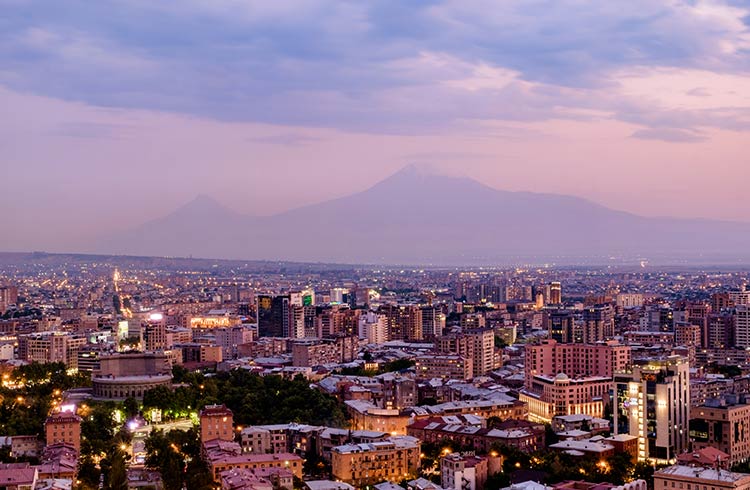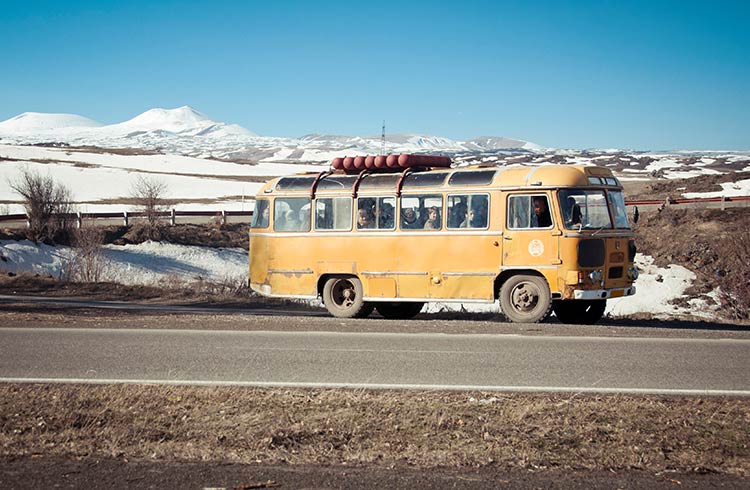Is Armenia Safe? 8 Essential Travel Tips for Visitors
How bad is crime in Armenia, and is it a safe place to travel? Find out about petty crime, no-go zones, political dangers and photography laws.
 Photo © Getty Images/Maria Swärd
Photo © Getty Images/Maria Swärd
Armenia is not a country many people visit, but this makes it an exciting place for travelers seeking off the beaten path destinations. It's located in a beautiful part of the Caucasus region of Eurasia, however, like all good adventures there are a few things you should keep in mind to stay safe while traveling.
- How bad is crime in Armenia?
- Local laws in Armenia
- Dual Armenian citizens
- No-go zones in Armenia
- Political demonstrations and protests
- Earthquakes in Armenia
- Safe transport in Armenia
- Health and safety in Armenia
How bad is crime in Armenia?
Petty crime is common in Armenia, but rarely targets travelers. Visitors should be aware of pickpockets in crowded plages, and if you are driving around the country, know that theft from vehicles is an issue, so keep your belongings hidden in the boot of your car, and windows shut and doors locked at all times. Robberies have been reported on train services from Armenia to Georgia.
Local laws in Armenia
Never accept illegal drugs in Armenia. Penalties for the use of, smuggling or possession of drugs include fines and long prison terms.
Do your best to avoid overt public displays of affection. Unfortunately, this is especially the case for same-sex couples. While homosexuality was decriminalized in 2003 and same-sex relations are legal, social acceptance of LGBT+ people in Armenia is limited. Public displays of affection by same-sex couples may attract disapproval and, in some cases, harassment; travellers should be discreet.
Never photograph military sites, bases, equipment and installations or sensitive areas – when in doubt, ask before taking photos in public. You risk detention and questioning if you are caught taking photos of these things.
The exportation of antiquities and other items that could have historical value, such as paintings, carpets, old books or other artisan goods, requires special authorization in advance from the Armenian Ministry of Culture. Keep this in mind if you were planning to bring any items of cultural significance home with you.
Dual Armenian citizens
If you are male, over eighteen and hold dual Armenian citizenship and you don't want your adventure to include Military Service, consult with Armenian officials or a consulate before traveling to the country.
You need to check your status regarding military service obligations. Draft evasion in Armenia is a serious offence and you can be detained, jailed or fined either upon entry or while trying to exit the country.
No-go zones in or near Armenia
Travel to Nagorno-Karabakh and the surrounding areas is strongly discouraged due to security risks, including landmines and limited access to emergency services. The region’s political status remains disputed, and Azerbaijan now controls the territory after its 2023 military operations. Border areas between Armenia and Azerbaijan are highly militarized, and travel near the frontier should be avoided. Monitor local advisories and government travel warnings before travelling near the international border.
Political demonstrations and protests
Protests may occur in major cities, including Yerevan and Gyumri, particularly during periods of political tension. In 2025, several high-profile arrests of government critics led to demonstrations in some areas. While many protests may be peaceful, they may escalate without warning. Travellers should avoid participating in or observing demonstrations, and steer clear of nearby crowds.
Armenia has experienced violent political unrest in the past, including deadly clashes following the 2008 presidential elections. If political tensions rise during your visit, avoid crowded public places, monitor local news, and never join a protest.
Earthquakes in Armenia
Armenia is located in an active seismic zone, but the most recent serious earthquake occurred in 1988, near Spitak in the Lori region. The earthquake killed between 25,000 and 50,000 people, injuring thousands and leaving several cities in ruins.
When earthquakes do occur here, they can cause major landslides and disruption to services.
There's not much you can do to avoid one, but if you are unlucky enough to experience an Armenian earthquake on your travels, listen to local authorities and media.
Safe transport in Armenia
Getting around Armenia may be challenging. Driving standards are generally poor, and aggressive driving may be common, particularly outside major cities. Road conditions vary widely: while some main roads are passable, rural and secondary roads may be poorly maintained, poorly lit, or lack signage. Extra care is needed, especially at night and in winter.
Public transport may be overcrowded and unreliable, particularly outside Yerevan. Only use registered taxis or reputable ride-hailing apps, and avoid hailing taxis from the street.
Travel near the Azerbaijan border is not advised. Avoid roads in the Tavush region, including routes between Ijevan and Noyemberyan and near Kirants and Baghanis/Voskevan, due to ongoing security tensions and proximity to the border.

Health and safety in Armenia
If you become sick or injured outside Yerevan, medical facilities may be limited, especially for serious conditions. In such cases, medical evacuation to a location with advanced care may be necessary.
Health risks in Armenia are generally low. Food‑ and water‑borne illnesses and common infections can occur, so take usual precautions. Make sure routine vaccines are up to date: tetanus‑diphtheria, polio, and measles‑mumps‑rubella (MMR). Depending on your itinerary, hepatitis A and B and typhoid may be recommended.
Before you buy a travel insurance policy, check your government travel warnings and health advice – there may be no travel insurance cover for locations with a government travel ban or health advice against travel.
Simple and flexible travel insurance
You can buy at home or while traveling, and claim online from anywhere in the world. With 150+ adventure activities covered and 24/7 emergency assistance.
Get a quote
No Comments